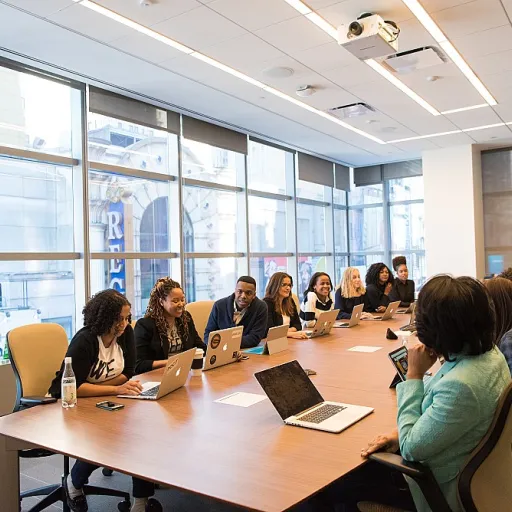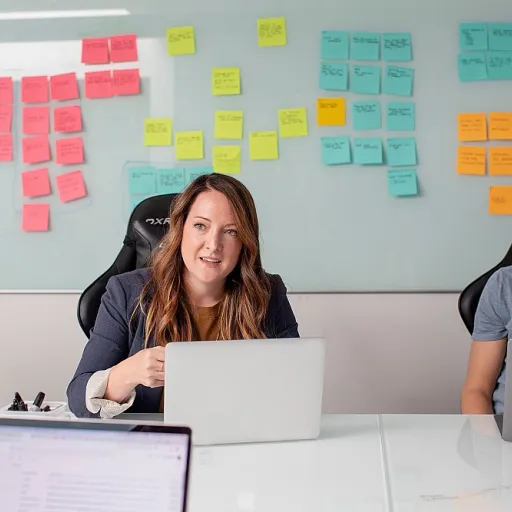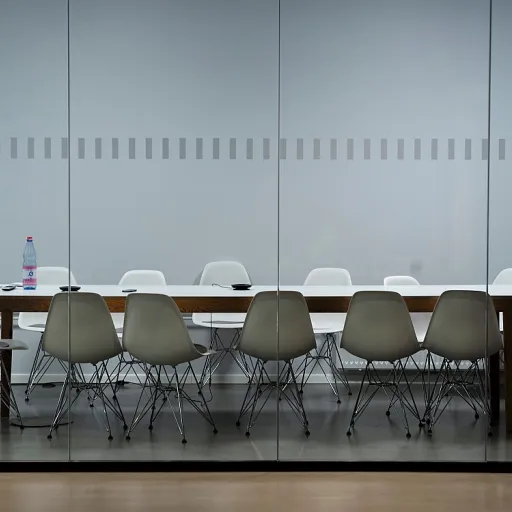
Understanding the unique demands of hotel desks in New Zealand
Recognising the Distinctive Nature of Hotel Desk Operations in New Zealand
Hotel desk operations in New Zealand are shaped by a blend of local culture, international guest expectations, and the country’s unique tourism landscape. Office managers must navigate these factors while ensuring smooth daily operations. The front desk is more than just a check-in point; it is the heart of guest experience, influencing perceptions of luxury, comfort, and efficiency from the moment guests enter the lobby.
- Seasonal tourism: New Zealand’s tourism peaks and troughs demand flexible staffing and adaptable desk operations. The ability to scale up or down quickly is essential for maintaining service standards.
- Contemporary living trends: Guests expect modern, comfortable spaces. The choice of room furniture, from the bed to the vanity and chair, should reflect a balance of luxury and practicality. Black accents, soft lighting, and well-placed mirrors can enhance both the look and function of the desk area.
- Space optimisation: Many hotels in New Zealand operate within limited footprints, especially in urban centres. Efficient use of width and wall space for desks and storage is crucial. Contemporary furniture hotel solutions help maximise both guest comfort and operational efficiency.
Hotel desk staff are often the first to address guest needs, from room upgrades to special requests for living spaces. Their ability to manage these demands hinges on the right training and support, which will be explored further in later sections. The integration of luxury hotel standards with practical, contemporary solutions is a recurring theme in successful New Zealand properties.
For office managers, understanding these unique demands is the first step in optimising operations. It’s also important to consider environmental factors, such as dust control in high-traffic areas. For practical tips, explore effective strategies for controlling dust to maintain a clean and welcoming environment at the front desk.
Key responsibilities of office managers overseeing hotel desks
Balancing Guest Experience with Operational Demands
Office managers in New Zealand hotels play a pivotal role in ensuring the front desk operates smoothly. The front desk is often the first point of contact for guests, setting the tone for their entire stay. Managing this space means balancing guest satisfaction with the daily operational needs of the hotel.- Coordinating check-in and check-out processes efficiently
- Overseeing the allocation of rooms and ensuring room furniture, such as beds, chairs, and vanities, meets the hotel’s standards for comfort and style
- Maintaining a contemporary living environment that reflects the luxury hotel’s brand, from the black accent wall to the soft lighting and mirrors that enhance the space
Ensuring Consistency in Service and Presentation
Consistency is key for office managers overseeing hotel desks. This includes monitoring the appearance of the desk and surrounding areas, making sure furniture hotel standards are upheld. The width of the desk, the placement of the chair, and the quality of the lighting all contribute to the guest’s perception of luxury and professionalism.- Regularly inspecting desk and room furniture for wear and tear
- Ensuring the vanity and mirror are spotless, and the living spaces are inviting
- Updating décor to maintain a contemporary feel, which can help the hotel stand out in a competitive market
Managing Communication and Problem-Solving
A hotel desk is a hub for communication. Office managers must equip staff with the tools and training to handle guest inquiries, resolve issues, and coordinate with housekeeping and maintenance. This includes using technology to track room status and guest requests, as well as fostering a culture of proactive service. For more insights on streamlining administrative processes and improving operational efficiency, explore strategies for enhancing efficiency in administrative management.Optimizing Spaces for Comfort and Functionality
The layout and design of the front desk and adjacent living areas can impact both staff productivity and guest comfort. Office managers should explore ways to maximize the use of space, choosing contemporary furniture that is both functional and visually appealing. Considerations include:- Choosing desks and chairs that support long shifts without sacrificing style
- Integrating soft lighting and mirrors to create a welcoming atmosphere
- Ensuring the width of the desk allows for privacy and efficiency during guest interactions
Technology trends transforming hotel desk management
Embracing Digital Tools for Seamless Guest Experiences
Technology is rapidly reshaping how hotel desks operate in New Zealand. Office managers are now expected to integrate digital solutions that enhance both efficiency and guest satisfaction. From contemporary living spaces to luxury hotel environments, the right tech can make a significant difference in daily desk operations.
- Property Management Systems (PMS): Modern PMS platforms allow front desk staff to manage room bookings, track guest preferences, and coordinate room furniture arrangements. This ensures guests enter a well-prepared space, whether it’s a soft bed, a black vanity, or a stylish chair against a feature wall.
- Self-Service Kiosks: Many luxury hotels are exploring self-check-in desks, which reduce wait times and free up staff for more personalized service. These kiosks often include options for guests to select room furniture preferences or request additional amenities, such as extra lighting or a mirror for their vanity.
- Mobile Integration: Guests increasingly expect to interact with the hotel desk via their smartphones. Mobile apps can handle check-in, room service, and even control in-room lighting or temperature, creating a seamless contemporary living experience.
- Smart Furniture and IoT: The integration of smart desks and room furniture is on the rise. Adjustable desk width, ergonomic chairs, and connected lighting systems contribute to both guest comfort and staff productivity.
Adopting these technologies not only streamlines front desk operations but also supports staff in delivering a luxury experience. However, it’s crucial to ensure that all team members are trained to use these systems effectively. For guidance on fostering a positive and professional team culture, read this practical guide on implementing a zero tolerance anti-bullying policy.
Ultimately, the right blend of technology and human touch helps New Zealand office managers create inviting spaces, from the front desk to the guest room, ensuring every stay feels both contemporary and luxurious.
Staff training and development for better guest interactions
Building Skills for Exceptional Guest Experiences
Investing in staff training is essential for any New Zealand office manager aiming to elevate hotel desk operations. The front desk is often the first point of contact for guests, setting the tone for their entire stay. Well-trained staff can seamlessly manage check-ins, handle room allocations, and respond to guest requests with professionalism and warmth.- Product Knowledge: Staff should be familiar with all room furniture, from the luxury bed to the contemporary vanity and chair. Understanding the features of each room, such as the width of the desk or the type of lighting, helps staff confidently answer guest questions and recommend upgrades.
- Communication Skills: Effective communication is vital. Training should focus on clear, friendly interactions—whether explaining how to enter a room, describing the soft furnishings, or assisting with mirror and wall features in luxury hotel suites.
- Problem-Solving: Desk staff must be prepared to address common challenges, from misplaced keys to special requests for black-out curtains or additional living space furniture. Role-playing real scenarios can help staff respond calmly and efficiently.
- Technology Use: As technology trends evolve, staff need ongoing training on new desk management systems and digital tools. This ensures smooth operations and enhances the guest experience.
Creating a Culture of Continuous Improvement
Encouraging a learning mindset among hotel desk teams leads to better service and higher guest satisfaction. Regular workshops, feedback sessions, and opportunities to explore contemporary living trends in hotel furniture keep staff engaged and informed. Office managers should also provide resources for staff to stay updated on luxury hotel standards, from the latest in furniture hotel design to best practices in front desk etiquette. By prioritizing staff development, office managers not only improve daily operations but also foster a culture where every team member contributes to the hotel's reputation for excellence in service and style.Addressing common challenges in hotel desk operations
Common Obstacles in Daily Desk Operations
Managing a hotel desk in New Zealand comes with its own set of challenges. Office managers often find themselves balancing guest expectations, staff performance, and the need for seamless operations. The front desk is the heart of the hotel, where first impressions are made and guest experiences are shaped. Here are some of the most frequent issues encountered:
- High Guest Turnover: With guests checking in and out frequently, maintaining a consistent level of service can be tough. Quick room turnovers require efficient coordination between desk staff and housekeeping, especially when luxury hotel standards are expected.
- Space Constraints: Many hotel desks are located in compact areas. Fitting essential room furniture like a black chair, vanity, or even a soft living area for waiting guests can be a challenge. Contemporary living spaces demand smart furniture hotel solutions that maximize width and function without cluttering the wall or entryway.
- Technology Integration: As discussed earlier, new desk management systems and lighting controls are transforming how front desks operate. However, integrating these technologies with existing room furniture and legacy systems can cause disruptions if not managed carefully.
- Staff Training Gaps: Even with ongoing training, staff may struggle to keep up with new procedures or guest expectations, especially when it comes to handling luxury or contemporary requests. Ensuring everyone is comfortable with the latest desk protocols and guest interaction techniques is essential.
- Guest Privacy and Security: Protecting guest information at the front desk is a top priority. Desk layouts, mirror placements, and lighting must be considered to prevent sensitive data from being visible to others in the lobby or living spaces.
Practical Solutions for Office Managers
To address these challenges, office managers can:
- Regularly review desk and room furniture layouts to ensure optimal flow and privacy. Consider contemporary furniture that blends luxury with functionality, such as soft chairs and vanities that fit the available width.
- Invest in staff development, focusing on both technology adoption and guest service skills. This will help the team confidently enter new situations and adapt to evolving guest needs.
- Explore modular or multi-purpose furniture hotel options that can be easily rearranged for different events or guest requirements, keeping the front desk area flexible and inviting.
- Implement clear protocols for data security at the desk, including the strategic placement of mirrors and lighting to minimize visibility of screens and documents.
- Gather feedback from both guests and staff to identify pain points in the desk operation. Use this input to make continuous improvements, ensuring the hotel desk remains a hub of efficiency and luxury hospitality.
Measuring success and gathering feedback at the hotel desk
Tracking Performance and Guest Satisfaction
Measuring the success of hotel desk operations is essential for office managers aiming to deliver a luxury hotel experience. Regularly tracking key performance indicators (KPIs) helps ensure the front desk team meets both guest expectations and business goals. Consider monitoring:- Guest check-in and check-out times
- Accuracy of room assignments and special requests
- Feedback on room furniture, such as the comfort of the bed, chair, and vanity
- Efficiency in handling inquiries about amenities like lighting, mirror placement, and contemporary living spaces












